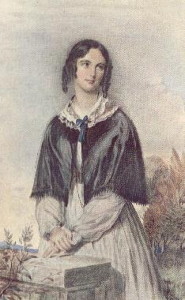 Charlotte Yonge is one of the most influential and important of Victorian women writers; but study of her work has been handicapped by a tendency to patronise both her and her writing, by the vast number of her publications and by a shortage of information about her professional career. Scholars have had to depend mainly on the work of her first biographer, a loyal disciple, a situation which has long been felt to be unsatisfactory. We hope that this edition of her correspondence will provide for the first time a substantial foundation of facts for the study of her fiction, her historical and educational writing and her journalism, and help to illuminate her biography and also her significance in the cultural and religious history of the Victorian age.
Charlotte Yonge is one of the most influential and important of Victorian women writers; but study of her work has been handicapped by a tendency to patronise both her and her writing, by the vast number of her publications and by a shortage of information about her professional career. Scholars have had to depend mainly on the work of her first biographer, a loyal disciple, a situation which has long been felt to be unsatisfactory. We hope that this edition of her correspondence will provide for the first time a substantial foundation of facts for the study of her fiction, her historical and educational writing and her journalism, and help to illuminate her biography and also her significance in the cultural and religious history of the Victorian age.
Featured Letters...
Dear Sir
I think it would be well to send me a set of sheets of What to Read, that I might add to them or cancel them on occasion. I know there are some good books of this winter not added, and Goldhanger Woods, and I have not seen a sheet since before Christmas. I am afraid the books may be forgotten and omitted if I do not set them down soon
Yours &c C M Yonge
... continue readingMy dear Mr. Butler I have two kind letters to thank you for, first about the T and secondly about the war - I wish the authority for the former was more direct and conclusive, it is so very beautiful.
The Monthly Packet of October will be quite German enough to please you, having the journal of a lady at Homburg and a translation by Miss Sewell of 'Der Wacht am Rhein', but I confess that I ... continue reading
